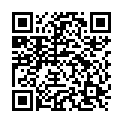|
|
|
| Module code: WIBASc-535 |
|
1V+3S (4 hours per week) |
|
5 |
| Semester: 5 |
| Mandatory course: yes |
Language of instruction:
German |
Assessment:
Paper with presentation
[updated 23.08.2018]
|
WIBASc-535 Industrial Engineering, Bachelor, ASPO 01.10.2013
, semester 5, mandatory course
|
60 class hours (= 45 clock hours) over a 15-week period.
The total student study time is 150 hours (equivalent to 5 ECTS credits).
There are therefore 105 hours available for class preparation and follow-up work and exam preparation.
|
Recommended prerequisites (modules):
None.
|
Recommended as prerequisite for:
WIBASc-525-625-FÜ16 Current Topics in (Business) Informatics (Seminar)
WIBASc-525-625-FÜ34 Contemporary Issues in Business Information Systems (Seminar)
WIBASc-525-625-FÜ7 Moderation and Leadership (Seminar)
WIBASc-525-625-Ing1 Production Planning (Seminar)
WIBASc-525-625-Ing16 Complementary Basics of Engineering
WIBASc-525-625-Ing3 Maintenance Planning (Seminar)
WIBASc-525-625-Ing4 Quality Techniques (Seminar, English)
WIBASc-525-625-W11 Technical Sales and Distribution (Seminar)
WIBASc-525-625-W12 Current Topics and Challenges in Business Enterprises (Seminar)
WIBASc-525-625-W13 Economic Foundations and the Political Framework of the German Energy Industry
WIBASc-525-625-W3 Current Problems in Energy Supply (Seminar)
WIBASc-525-625-W5 Business Planning (Seminar)
WIBASc-525-625-W6 Consulting (Seminar, English)
[updated 19.01.2022]
|
Module coordinator:
Prof. Dr.-Ing. Christian Köhler |
Lecturer:
Prof. Dr.-Ing. Christian Köhler
[updated 10.02.2020]
|
Learning outcomes:
Introduction to Scientific Work
After successfully completing this module students will:
_ have mastered important learning and working techniques for studying
_ and thus have the ability to work independently.
_ have acquired time management skills.
_ have gained an overview of the usual citation techniques and be able to debate and discuss the topic of plagiarism.
Scientific Seminar
After successfully completing this module students will:
_ be able to independently write a scientific paper on a current topic followed by a presentation.
_ have mastered the use of citation and time management techniques.
_ be able to take a position on a specific topic or problem in their paper and justify their position.
_ be able to communicate and interact with other seminar participants during their presentation.
[updated 13.09.2018]
|
Module content:
Introduction to Scientific Work:
Overview of the citation regulations at the htw saar
_Typical_ errors in scientific work
The optimal design of a scientific composition using a word processing program
Scientific Seminar:
Participants will read and work independently on a given topic and then present their findings in accordance with the principles of proper scientific work. The paper should apply techniques of scientific methodology. The short talk to be given after finishing the paper will promote communication skills and the ability to defend one´s own point of view.
[updated 23.08.2018]
|
Teaching methods/Media:
Introduction to Scientific Work:
Regularly revised citation rules will be passed out.
Scientific Seminar:
Paper with presentation
[updated 23.08.2018]
|
Recommended or required reading:
Introduction to Scientific Work:
_ Theisen, Manuel Rene: Wissenschaftliches Arbeiten, 15. Auflage, Vahlen, München, 2011
_ Zitationsordnung der Business School der HTW des Saarlandes
Scientific Seminar:
Current literature on individual student topics.
[updated 23.08.2018]
|

